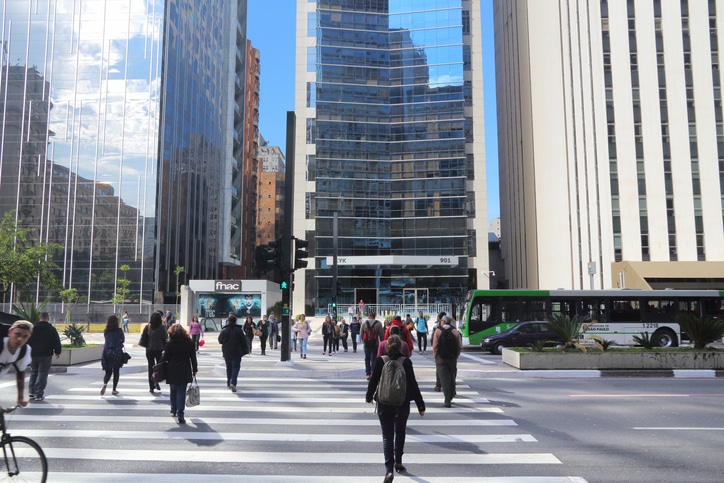Brazil’s vibrant financial center São Paulo is preparing to deploy 20,000 facial recognition cameras designed to increase public safety. But civil rights organizations are raising concerns that the project could target vulnerable populations as the city awaits final approval of a bid for running the systems worth 9.2 million Brazilian reals (roughly US$1.9 million) a month.
The approval can only be granted after the completion of an evaluation by the city, according to Folha de S.Paulo. Al Jazeera reports that the winning bid was made by Brazilian consultancy PK9.

Fernanda Rodrigues, a digital rights lawyer and research coordinator at the Institute for Research on Internet and Society (IRIS) tells Al Jazeera that the project, known as Smart Sampa, could drive mass incarceration of black individuals due to high rates of false positives.
A study conducted by the Center for Studies on Public Security and Citizenship (CESeC) in 2019 showed that 90.05 percent of the individuals arrested through decisions based on facial recognition in Brazil are black. The study looked at 151 arrests that year. Requested information on false matches was not provided.
“As well as the risks that the information fed to these platforms may not be accurate and the system itself might fail, there is a problem that precedes technology implications, which is racism,” says Rodrigues.
Civil organizations in the city which is home to 12 million people have long been fighting the deployment of facial recognition tech.
São Paulo’s government has acknowledged some of the criticism by updating the Smart Sampa tender with a study on the impact of technology which acknowledged privacy and data risks and the high probability of bias. The report promised to introduce measures such as considering detections only with 90 percent matches, including a trained human in the loop as well as increased data protection and cybersecurity that would comply with the General Law of Data Protection.
Rights organizations have attempted to prevent the rollout of the system.
In May the local Court of Justice overturned a legal suspension of procurement for the program that was introduced over data protection and racial bias concerns. The city claims that there is no evidence that the surveillance system would increase discrimination.
That same month, São Paulo selected the $1.9 million a month bid from an unknown operator for running the Smart Sampa project and its initial 20,000 cameras. The next phase is testing the system. If the offer is confirmed, the city will pay a total of 552 million Brazilian reals (roughly US$115.1 million) for the project over 60 months, according to Folha de São Paulo newspaper.
Smart Sampa has faced additional complaints from CESeC and other non-profits for its lack of transparency. The groups have filed a number of legal actions against governments rolling out the technology including a civil lawsuit that was launched by the Public Defender’s Office of São Paulo in May. The case calls for the suspension of the project and a halt on the use of facial recognition systems for urban safety.
São Paulo has already deployed a facial recognition security system on one of its metro lines. City governments have been rolling out facial recognition tech elsewhere in Brazil, including using it to identify supporters of former President Jair Bolsonaro that clashed with the police in Brasilia in January this year.
Fonte: BiometricsUpDate
Acompanhe como o reconhecimento facial, impressões digitais, biometria por íris e voz e o comportamento das pessoas estão sendo utilizados para garantir a identificação digital precisa para mitigar fraudes e proporcionar aos usuários conforto, mobilidade e confiança.
Leia outros artigos de nossa coluna de Biometria!

































